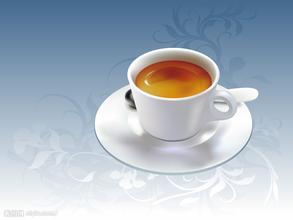Brazilian coffee flavor with low sour taste introduction to boutique coffee in manor area
General K. Fonseka launched a coup on November 15, 1889, overthrowing the monarchy and establishing the United States of Brazil. Under the slogan of "order and progress" and based on the presidential system, the new government has strengthened Brazil's modernization. In addition to producing 3/4 of the world's coffee, it has also made good economic achievements. Later, under the panic of the world economy in the 1930s, the "coffee economy" was dealt a heavy blow, and the subsequent coups, dictatorship and constitutional monarchy plunged politics into chaos.
Pakistan came to power in a military coup in 1964 and changed its name to the Federative Republic of Brazil in 1967. In March 1985, the junta returned power to the people. On November 15, 1989, Pakistan held its first national direct election in nearly 30 years, and Fernando Collor was elected president. On December 29th, President Collor was forced to resign on suspicion of taking bribes, and Vice President Itamar Franco took over as president on the same day. On October 3, 1994, Fernando Henrique Cardoso won the national election and became the 38th president of Brazil on January 1, 1995. On October 4, 1998, Cardoso was re-elected. On January 1, 1999, Cardoso was inaugurated as Pakistan's 39th president until December 31, 2002.
In October 2002, Lula, a candidate of the leftist coalition led by the Labor Party, won the general election, becoming the first directly elected left-wing president in Pakistan's history. In October 2006, Lula defeated the Social Democratic candidate Alkmin and won re-election. Dilma Rousseff won the general election in October 2010 as a candidate for the Labour Party. On May 12, 2016, the plenary session of the Brazilian Senate approved the impeachment of President Rousseff, who will be forced to leave office for up to 180 days, during which the presidency will be replaced by Brazilian Vice President Michel Temer.
Brazil is located in southeastern South America, spanning 35 to 74 degrees west longitude and 5 degrees north to 35 degrees south latitude. It is bordered by the South Atlantic Ocean to the east and any country in South America to the north, west and south (except Chile). It is bordered by French Guiana, Suriname, Guyana, Venezuela and Colombia to the north, Peru and Bolivia to the west, and Paraguay, Argentina and Uruguay to the south. The coastline is about 7400 kilometers long. The width of the territorial sea is 12 nautical miles and the overseas exclusive economic zone is 188 nautical miles. [7]
Brazil is the largest country in South America, with a territorial area of 8.5149 million square kilometers, accounting for about 46% of the total area of South America, ranking fifth in the world after Russia, Canada, China and the United States.
Brazilian coffee generally refers to coffee produced in Brazil. There are many kinds of coffee in Brazil, and like other Arabian coffee, Brazilian coffee is called
"Brazils" to distinguish it from "Milds" coffee. The vast majority of Brazilian coffee is unwashed and sun-dried and is classified according to the name of the state of origin and port of transport. Brazil has 21 states, 17 of which produce coffee, but four of them produce the largest, accounting for 98 per cent of Brazil's total output: Parana, SaoPaulo, MinasGerais and EspiritoSanto, with the southern state producing the most, accounting for 50 per cent of total production.
Low acidity, moderately roasted coffee beans from the World Coffee Center.
Brazil is vividly compared to the "giant" and "monarch" of the coffee world. There are about 3.97 billion coffee trees there, and small farmers now grow 75% of Brazil's total coffee production. The number of coffee producers in Brazil is twice or even three times that of Colombia, the second largest coffee producer in the world.
Unlike in the past, Brazil's economy is now less dependent on coffee, which accounts for only 8% to 10% of GDP. Before World War II, Brazil accounted for 50% or more of the world's coffee production, and now it is close to 30%. But the country's impact on the world's coffee, especially on coffee prices, is significant. For example, two frost disasters in 1994 caused a sharp rise in global coffee prices.
Since the introduction of coffee trees from French Guiana (Guyana) in 1720, coffee production has gradually become a science. Before 1990, the Brazilian government carried out strict monitoring of the coffee industry, with both strict intervention and price protection measures, and the state has been implementing minimum price protection measures for farmers, resulting in coffee overproduction. Before World War II, the remaining stock reached 78 million bags, which had to be burned by fire or thrown into the water to destroy.
Since the opening of the free market in 1990, the original Brazilian Coffee Authority (IBC) has been replaced by the National Economic Association, the country's non-investment administrative body, which pursues a policy of non-intervention and allows producers to negotiate directly with exporters. The business activities of exporters are supervised by government legislation, and legitimate exporters are registered by the relevant departments.

Important Notice :
前街咖啡 FrontStreet Coffee has moved to new addredd:
FrontStreet Coffee Address: 315,Donghua East Road,GuangZhou
Tel:020 38364473
- Prev

Very aromatic and mellow Nicaraguan coffee flavor taste manor characteristics of boutique coffee beans
Managua, the capital of Nicaragua, is located in the west of the border, on the south bank of Lake Managua, hence its name. The northwest is 140 kilometers away from the Collinto seaport on the Pacific coast. 55 meters above sea level. It is a Spanish city with beautiful scenery. Because it is located to the east of the Pacific volcanic active seismic belt, there have been four strong earthquakes in the city in the past 100 years, including one in December 1972.
- Next

Fragrant and rich boutique coffee taste manor area in the Central Dashan area of Nyeri, Kenya
The Constitution of the Republic was promulgated in 1964 and has been amended 30 times by September 2014. In June 1982, Ken established an one-party system by amending the constitution. In December 1991, it was changed to a multi-party system, which stipulates that the president is willing to be a multi-party democratic country, and the president is the head of state, head of government and commander-in-chief of the armed forces, with a term of office of five years and no more than two terms.
Related
- Detailed explanation of Jadeite planting Land in Panamanian Jadeite Manor introduction to the grading system of Jadeite competitive bidding, Red bid, Green bid and Rose Summer
- Story of Coffee planting in Brenka region of Costa Rica Stonehenge Manor anaerobic heavy honey treatment of flavor mouth
- What's on the barrel of Blue Mountain Coffee beans?
- Can American coffee also pull flowers? How to use hot American style to pull out a good-looking pattern?
- Can you make a cold extract with coffee beans? What is the right proportion for cold-extracted coffee formula?
- Indonesian PWN Gold Mandrine Coffee Origin Features Flavor How to Chong? Mandolin coffee is American.
- A brief introduction to the flavor characteristics of Brazilian yellow bourbon coffee beans
- What is the effect of different water quality on the flavor of cold-extracted coffee? What kind of water is best for brewing coffee?
- Why do you think of Rose Summer whenever you mention Panamanian coffee?
- Introduction to the characteristics of authentic blue mountain coffee bean producing areas? What is the CIB Coffee Authority in Jamaica?

